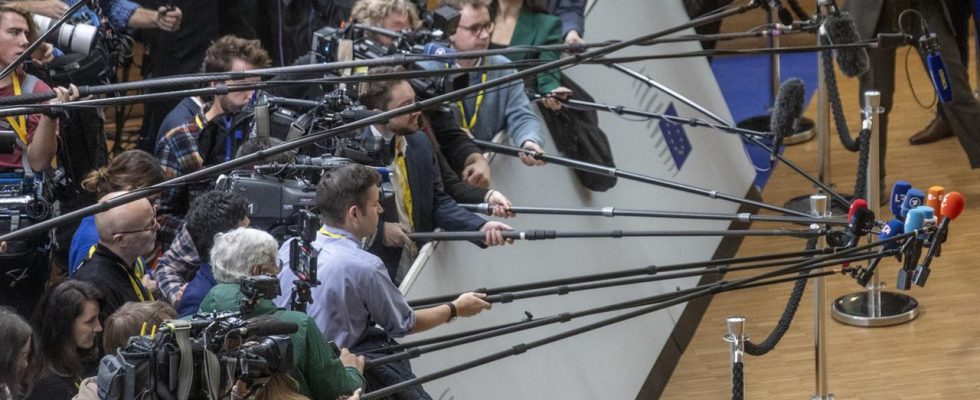The EU wants to better protect journalists and media companies from political influence with the new Media Freedom Act. Brussels is particularly concerned about the state of the press in countries like Hungary and Poland.
“We want this law as quickly as possible because it is a historic step to protect journalists and media pluralism,” said EU MP Sabine Verheyen (CDU). After the successful political agreement, Parliament and the Council, the body of the EU member states, still have to approve the law. This is usually considered a formality.
An independent media supervisory authority should monitor compliance with the new EU rules. The authority should work independently of the EU Commission and be advised by a group of experts from the media and civil society. Journalists should be able to contact the authorities directly if they are unable to do their work due to government restrictions. They should also be able to assert their rights.
Problems in Poland and Hungary
In particular, the way things are handled in countries like Hungary or Poland, where the state directly influences the media, has become a bigger problem from the EU’s perspective in recent years. She wants to remedy this with the law.
There was some strong criticism of the proposed law. This referred, among other things, to the lack of protection for journalists. The EU member states’ draft law initially stipulated that the surveillance of journalists, their environment and their sources should be permitted if “national security” was threatened. This wording has now been completely deleted from the legal text, as EU MPs emphasized on Friday.
Publishers see a threat to freedom of the press
Publishers had also expressed concern that certain provisions threatened rather than protected press freedom. “While the press is struggling with economic, regulatory and competitive challenges, the EU is putting together a corset that does not address any of the problems and instead endangers freedom of the press,” said the Federal Association of Digital Publishers and Newspaper Publishers (BDZV) and the Media Association of the Free Press (MVFP ) with. One of the biggest points of criticism remains the “official supervision of the press,” explained the associations, “in which the EU Commission also wants to have a say.”
Germany’s Minister of State for Media Claudia Roth (Greens), however, spoke of the EU agreement as “very good news”. Freedom and diversity of the media in Europe would be strengthened and secured. She also referred to changes that had been made that were important for publishers, public broadcasters and journalists in this country. Roth assured that there would be no interference with the well-functioning German media system.

